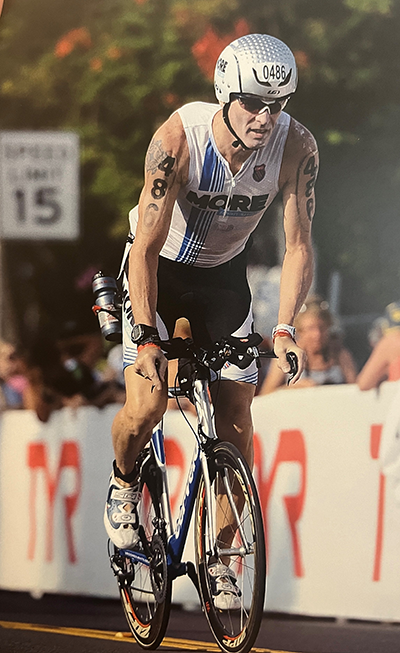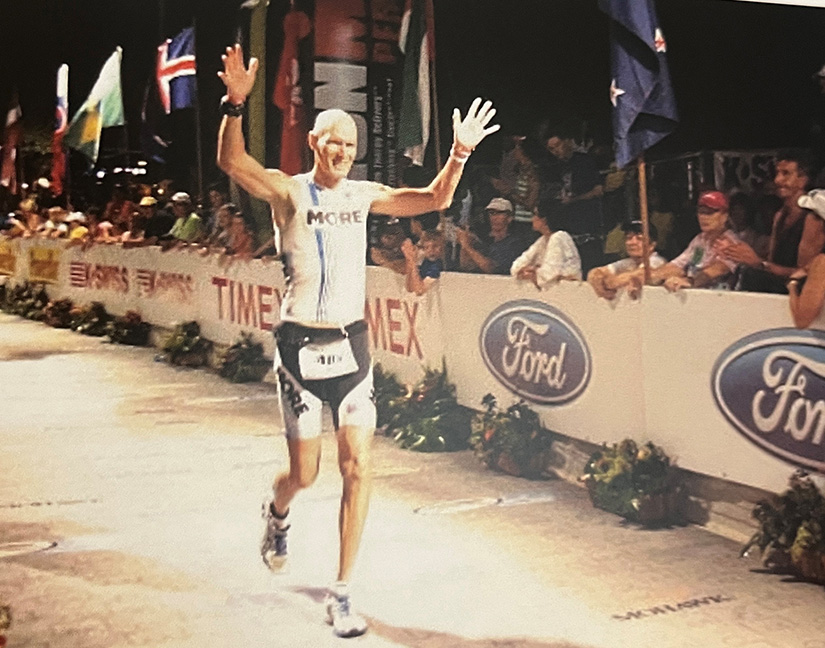As a four-year-old, Edwin “Eddie” Herd remembers sitting in front of his family’s television set, watching broadcasts that he ultimately carried with him through life. American Bandstand introduced him to his love of music, the Apollo moon landing ignited his curiosity for science, evangelist Billy Graham sermons helped guide his faith, and the 1968 Olympics awoke a passion in him to chase a dream.
Herd first attended the University South Carolina in 1979 where he ran collegiate track and joined a training team out of Santa Monica to help with his quest to qualify for the Olympics. After a semester break of training and sizing up the competition, he came back to South Carolina realizing his dream of becoming an Olympian wasn’t in the cards, but continued his love for running. He graduated in 1982 with a degree in chemical engineering and even worked in the field for four years before answering the calling to help people and enrolling in the MD program at the University of South Carolina School of Medicine.
Herd ran throughout medical school, using it as a type of therapy to get him through the rigorous academics.
“Everyday at 4 o’clock if my best friend and I weren’t in the hospital, we’d go for a run and complain about the workload for the first 10 minutes,” Herd says. “But then all of a sudden, the troubles start to fade away, and the last 20-30 minutes of the run was relaxing. It was a big boost to me during medical school to keep going.”
During the program, he learned from Dr. Shawn Chillag, a professor in internal medicine, who introduced him to the world of Ironman races being a competitor himself, and quickly became an inspiration to Herd.
After graduating from the SOM in 1990, Herd trained in pediatrics at the University of Colorado, then joined the Air Force where he was stationed in Las Vegas, Nev., practicing pediatric critical care. He adopted a rigorous training schedule that he continued for 10 years which consisted of four-to-seven days of light work and recovery while he was on the schedule at the hospital or his practice, followed by two-to-three weeks of focused training and races during breaks in his pediatric work schedule. Along with putting in the miles on foot, on the bike, or in the water, he had to replenish calories constantly, as his workouts would easily burn 7,000 kcals alone.

He completed his first Ironman in 1998 and competed in the Ironman World Championships in Hawaii three times before he and his wife, Belinda, decided to move to Kona in 2007. He later purchased a pediatric practice initially owned by the original medical director of the Ironman World Championships, a legend in the race community. Over the course of 27 years from running his first triathlon in 1984, Herd competed in 14 Ironman races all over the world, including qualifying five times for the Ironman World Championship. He says his favorite racing accomplishments were breaking the 10-hour time barrier in Austria and proudly representing the USA in the parade of nations at his first Iron Man World Championship.
In 2009 at a qualifying triathlon, he made the podium for his age group, but felt off physically during post-race celebrations. After an echocardiogram, he was diagnosed with a failed open valve and his heart had ballooned in size that caused irregular heart rhythms, and he went through open heart surgery to replace the valve. He didn’t know it then, but this was his last elite race. In 2011, he gained entry into the Ironman World Championship as a Big Island of Hawaii Resident rather than qualifying as an elite competitor as he did in the past, and as his last Ironman competition, he raced it alongside his wife.
Dr. Herd and his wife recently moved back to the mainland and currently reside in Iverness, Fla., closer to family, and he continues his work as a pediatric hospitalist. His training looks a little different these days: still keeping his body moving with hikes, biking and swimming, but sprinkling in a good dose of writing/playing music and being active with church and a homeless ministry. He believes racing made him a better physician, saying medicine takes very similar discipline and dedication to race training.
Herd says, “You don’t get to the finish line by deciding ‘this month, I’m going to work hard.’ No, you have to work hard every day and stay focused.”

More than anything, his favorite part of medicine and the race community were the relationships.